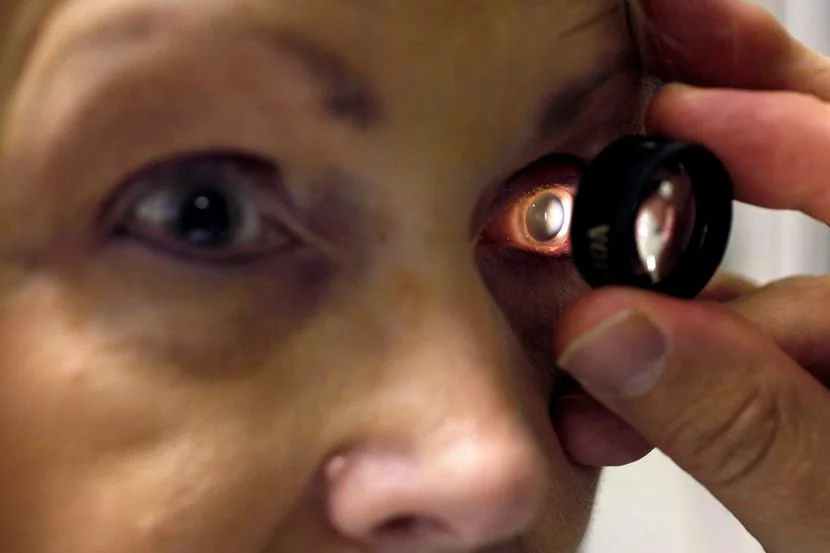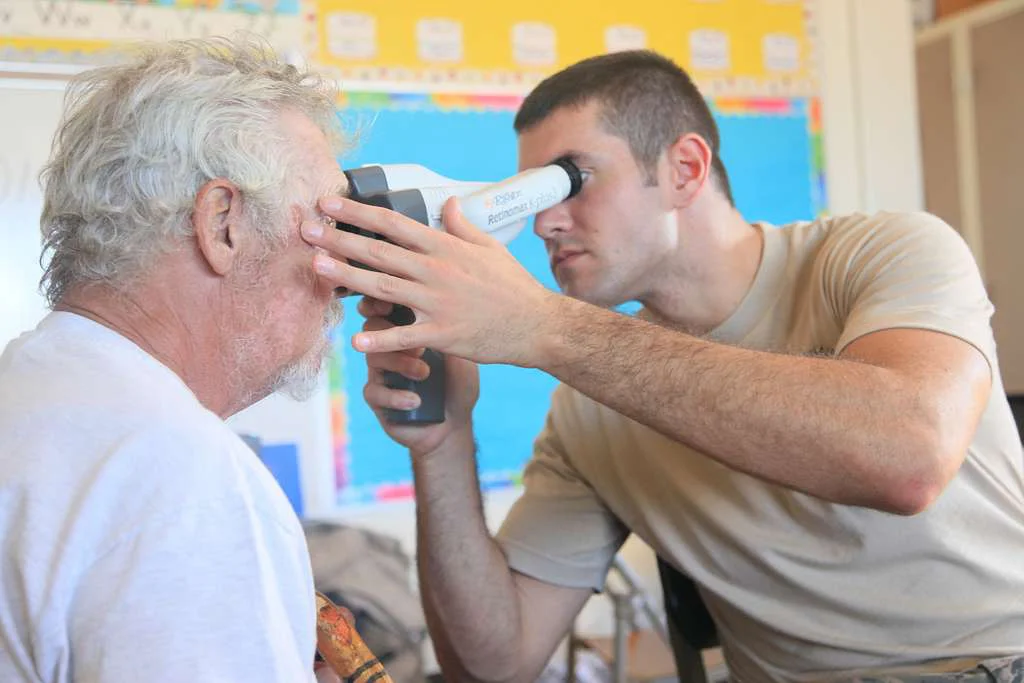Does Medicare Pay for Eye Exams?
December 31, 2023
Keeping up with regular medical appointments is a crucial component of a strong wellness plan for older adults. Many seniors rely on Medicare as their main form of payment for their annual check-ups, preventative exams, and other physician visits. Medicare is a crucial healthcare program that provides coverage for a wide range of medical services, but many beneficiaries wonder whether routine eye exams are included in its coverage.
The relationship between Medicare and eye care can be complex, with various factors influencing what is covered and what is not.
In this article, we cover the details of Medicare coverage for eye exams, exploring topics such as:
- Routine eye exams
- Specific types of eye exams
- Coverage for eyeglasses
- Options through Medicare Advantage plans
- Other ways to pay for eye exams.
Are Routine Eye Exams Covered?

Medicare is designed to cover medically necessary services, and while you might think that routine eye exams typically fall into the category of preventive care, it is not the case when it comes to Medicare.
Unfortunately, original Medicare (Part A and Part B) does not cover routine eye exams for eyeglasses or contact lenses.
This means that beneficiaries are generally responsible for the costs associated with regular eye check-ups to update prescriptions or monitor eye health.
What Types of Eye Exams Are Covered by Medicare?
While routine eye exams for prescription updates are not covered by Medicare, the program does provide coverage for specific types of eye exams that are deemed medically necessary.
Medicare Part B, the outpatient portion of the program, covers eye exams under certain circumstances:
- Diagnostic Tests for High-Risk Conditions: Medicare covers diagnostic tests for high-risk individuals, such as those with diabetes or a family history of glaucoma. These tests may include screenings for glaucoma, macular degeneration, and diabetic retinopathy. Glaucoma testing, if your doctor notes you are at risk for the condition, will be covered annually.
- Treatment for Chronic Eye Diseases: Medicare will cover eye exams when they are related to the treatment of chronic eye diseases, such as cataracts or macular degeneration. If a physician deems the exam necessary for the management of an existing eye condition, it may be covered by Medicare.
- Pre- and Post-Cataract Surgery: Medicare covers eye exams that are required before and after cataract surgery. This includes necessary testing and measurements to determine the correct prescription for intraocular lenses.
- Emergency Eye Care: If you experience sudden and severe eye injury or disease, Medicare will cover the associated emergency eye care. This includes visits to an emergency room or urgent care facility for immediate treatment.
Will Medicare Pay for Eye Glasses?
Original Medicare (Part A and Part B) typically does not cover the cost of eyeglasses or contact lenses.
However, if you have had cataract surgery that required the implantation of an intraocular lens, Medicare may cover one pair of eyeglasses or one set of contact lenses following the surgery.
It’s important to note that while Medicare covers the cost of the basic frames and lenses for post-cataract care, beneficiaries are responsible for any additional features or upgrades, such as anti-reflective coating or designer frames.
Coverage Through Medicare Advantage Plans (Part C)
Medicare Advantage plans, also known as Part C, are private insurance plans that offer an alternative to traditional Medicare coverage. These plans are required to cover everything original Medicare covers, and many also include additional benefits such as vision coverage.
If you have a Medicare Advantage plan, your coverage for eye exams and eyeglasses may differ from original Medicare.
Some Medicare Advantage plans provide routine eye exam coverage and may even include benefits for eyeglasses or contact lenses.
However, the specifics of coverage can vary widely, so it’s crucial to carefully review the details of your plan or contact the insurance provider for information on vision benefits.
What Other Options Are Available to Pay for Eye Exams?
Since routine eye exams are not covered by original Medicare, and coverage through Medicare Advantage plans can vary, beneficiaries may explore alternative options to manage the costs of eye care.
Here are some potential avenues to consider:
- Medicaid: Medicaid is a state and federally funded program that provides health coverage to individuals with limited income and resources. Some states offer vision benefits through Medicaid, covering routine eye exams and eyeglasses. Eligibility criteria and covered services vary by state, so it’s essential to check with your state Medicaid office for specific information.
- Supplemental Vision Insurance: Standalone vision insurance plans are available for purchase to supplement your Medicare coverage. These plans often cover routine eye exams, eyeglasses, and contact lenses. Before enrolling in a vision insurance plan, carefully review the coverage details, including any waiting periods or restrictions. You might be eligible for programs like this through your pension plan, or you might just purchase vision insurance from an insurance provider.
- Discount Vision Programs: Some organizations and retailers offer discount vision programs that provide reduced rates on eye exams, eyeglasses, and contact lenses. These programs are not insurance but can be a cost-effective option for those without vision coverage. Be sure to verify the participating providers and the extent of the discounts offered.
- Community Health Clinics: Community health clinics and free clinics may offer reduced-cost or sliding-scale fees for eye exams. These clinics aim to provide affordable healthcare services to underserved populations, and they may be a valuable resource for individuals without insurance coverage for routine eye care.
- Senior Assistance Programs: Local senior assistance programs or senior centers may offer resources or subsidies for eye care services. These programs vary by location, so check with your local aging services or community organizations for information on available assistance.
Conclusion
While original Medicare does not typically cover routine eye exams, it does provide coverage for specific types of eye exams that are deemed medically necessary.
Beneficiaries should be aware of these distinctions and explore alternative options, such as Medicare Advantage plans, supplemental vision insurance, or community resources, to address their eye care needs. Further, seniors should always inquire about coverage before they make an appointment so that they will not be surprised by any billing that follows.
Understanding the scope of Medicare coverage for eye exams empowers beneficiaries to make informed decisions about their eye health and explore additional avenues for financial assistance when necessary.



